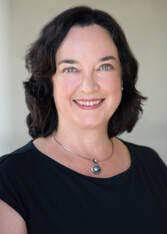 Sarah Hanawald Sarah Hanawald In the past few weeks, my calendar has been filled with conversations with independent school Academic Leaders. These conversations have been varied and engaging. I’ve connected with Academic Leaders from schools across the country, both large and small, boarding and day, urban and rural, and so on. As diverse as the schools and the leaders are, there's a thread going through these conversations, whether I’m speaking with the Assistant Head of School for Academics at a K-8 with just under 50 total faculty members, or the chair of the English department at a large school with over 15 faculty members to lead. Academic Leaders are concerned about sustainability, not just in the larger global environmental sense, but in the personal, ‘How do we sustain our people?’ sense. There’s the “right now” sustainability: Can we sustain the fragile optimism we share right now as mask mandates and hospitalizations drop? We’ve been here before… Timing plays a role. Academic Leaders are concerned about the well-being of students and teachers in a school year that’s about to begin concluding, an oxymoronic phrase that captures the season of school life that begins after spring break, and gathers speed and intensity until the end of the academic year. As they look ahead, Academic Leaders are wondering, “How can I help support each person relying on me?” There’s also a longer view at play in their consideration: will the teachers and students return for 2022-2023? The data on both are confusing and mixed, and one’s perspective on enrollment changes and hiring in the face of “the big quit,” is dependent upon the factors particular to an individual school’s situation, geography, and community. Academic Leaders are wondering, “How can I help sustain the community we’ve built and nurtured?” There’s a topic I’ve learned to ask about if it doesn’t emerge after the conversation has covered these more external concerns. “How are you managing your sustainability?” I ask, because I know that the mindset of many Academic Leaders is to keep themselves on a back burner. Here’s where the conversations get real and everyone wants to be off the record: Academic Leaders are worried about their personal capacity to continue to serve well, too. At the end of some days, they step away knowing they’ve left things undone and unanswered, and they hope that they've been perceptive enough in their to-do list triage that they’ve picked the right things to leave to tackle tomorrow. Academic Leaders are also concerned about the sustainability of their profession. Almost a year ago, the National Association of Independent Schools (NAIS) shared that “more than half of heads intend to transition from their current jobs within the next five years…and over 60% of administrators plan to transition out of their job during that time frame.” Said one Academic Leader, “I don’t know where the next generation of leaders is going to come from if they’ve been watching us and seeing this as a model.” And yet…that’s not where the conversations end. Academic Leaders remain optimistic and future focused, convinced that their work supporting mission-aligned teaching and learning matters. After sharing their concerns, what I inevitably hear next is a version of what another leader said, “Thank you for a place to make the personal connections I need to do my best work–that’s the key to sustainability.” We’re honored to be making this space for Academic Leaders to sustain themselves and further the work they do every day. We’re here for you, Academic Leaders, whether it’s in providing the classes you need to grow your competencies, the connections you need for insights, or access to the voices of those who inspire you.
0 Comments
Leave a Reply. |
Don't miss our weekly blog posts by joining our newsletter mailing list below:AuthorsBrad Rathgeber (he/him/his) Archives
July 2024
Categories |

 RSS Feed
RSS Feed